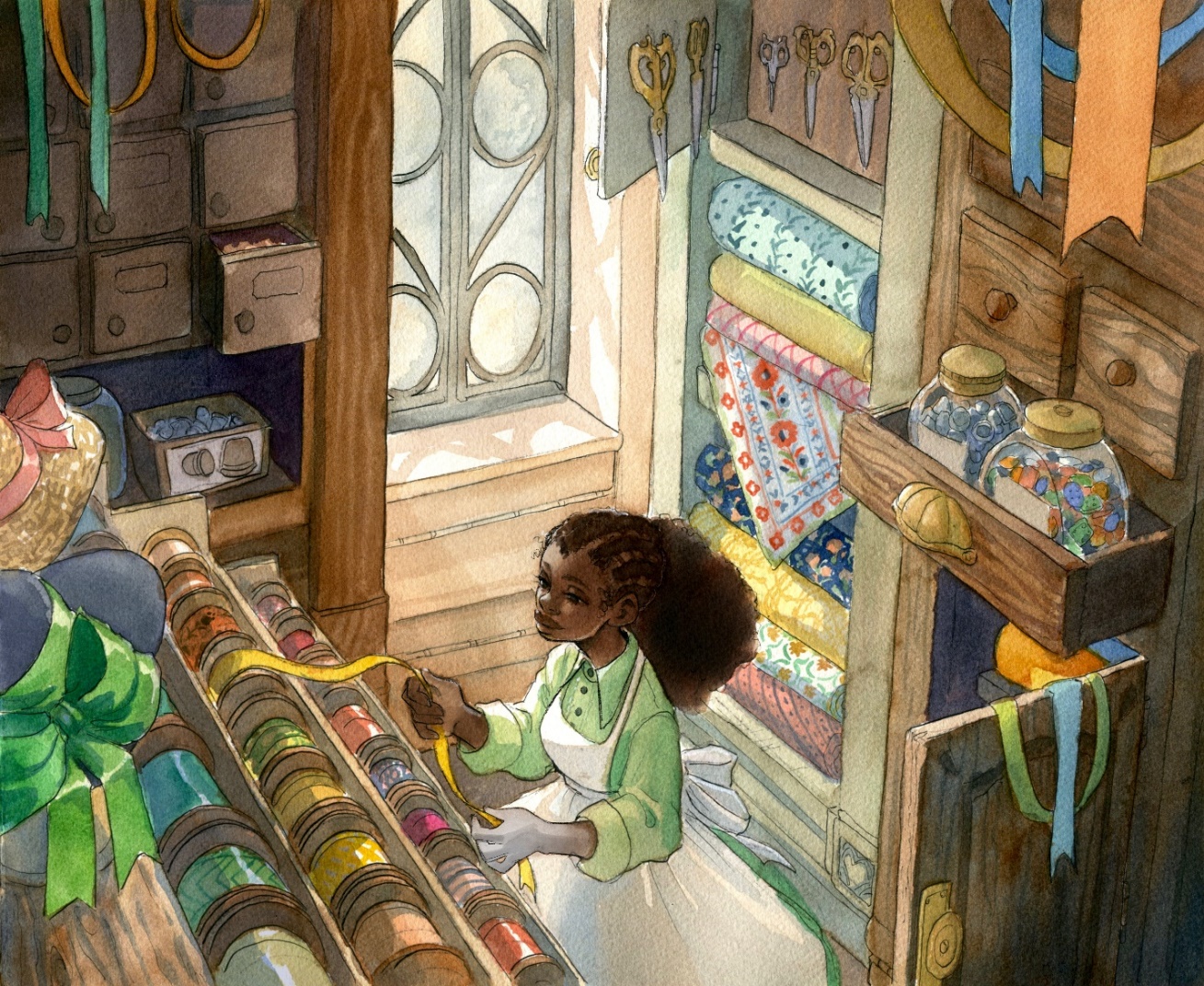Hung out the door of a shop, heavily beaded jackets clinked together like windchimes, and Moth was so transfixed Tully had to yank her back to keep her from walking into a wall.
“If I saved for a year, I still couldn’t afford one,” said Tully as Moth gasped at a blouse embroidered with ferns and flowers. “The ribbon shop would be more within our purse, let’s go take a look.”
Around a corner was a small shop that rippled with ribbons strung up to be admired; the door was large and stood open, with a creaking floorboard that announced their presence to a tired, graying woman. She glanced them over and continued to hang up spools of ribbons.
The ribbons were arranged by color, and Moth went down the aisle and reached out a hand to touch the very tips of them, feeling silk, cotton, velvet.
Tully bought a spool of plain, undyed cotton ribbon and wandered around eyeing the hats and ribbons with little interest, more interested in a few bolts of embroidered fabric, while Moth studied the range of green ribbons.
At last she found one of a soft mint, with a small pattern of yellow flowers embroidered on it and gestured frantically to Tully who hurried to her and said, “What? What is it?”
“Isn’t it beautiful?”
“It’s expensive.”
Seeing the price, Moth recoiled her fingers. “It is.”
“I like the green though. Here, let’s look at the grosgrains, they’re cheaper.” Tully showed her to heavy woven ribbons, which had a steep drop in price.
As she glanced through them, Moth was struck again by a marigold yellow color, that felt warm to even look at. She touched it, and found it was silk blend grosgrain.

“What about this?”
“It’s absolutely yellow. Good price.”
Moth brought it to the woman at the counter and bought two yards of it. She felt nervous as she reached in her pocket for her coins and counted them out, placing them in the woman’s hand and received the ribbon in return. She wrapped it around a flat wooden spool for her, and cut it with a crisp snip of his scissors.
Clenching it to her chest, Moth said after they left the shop, “I bought something with money I earned while working.”
“You’re so newborn, Moth; welcome to an industrial society.” Tully glanced at the sky and said, “I don’t want to miss dinner. Let’s cut across the tailor street and we’ll be back on Mercy in a wink.”
Moth wanted to stay and look at every blouse in every window, the shop that seemed to be nothing but workwear and aprons so starched they crackled in the wind, but she followed after Tully and tucked her new ribbon safely into her pocket as they cut around a bend and directly into a dense crowd of angry people.
Nearly slamming into a man, Tully backed up and grabbed onto Moth so they wouldn’t get separated. The crowd was swelling and getting louder, and they heard a woman shriek something.
Tully elbowed a young man. “What is this?”
“They’re pulling down the ferryman.”
Moth’s heart seized up, and she gripped onto Tully’s arm.
Tully pressed her mouth together and said, “The statue has become an eyesore to a lot of people. Who’s doing it?”
“Count Taebere ordered it, after being pressed by some of Magden’s councilors. Supposedly they were petitioned by the tailor’s guild, but I think that’s nonsense; no one’s happy here.”
